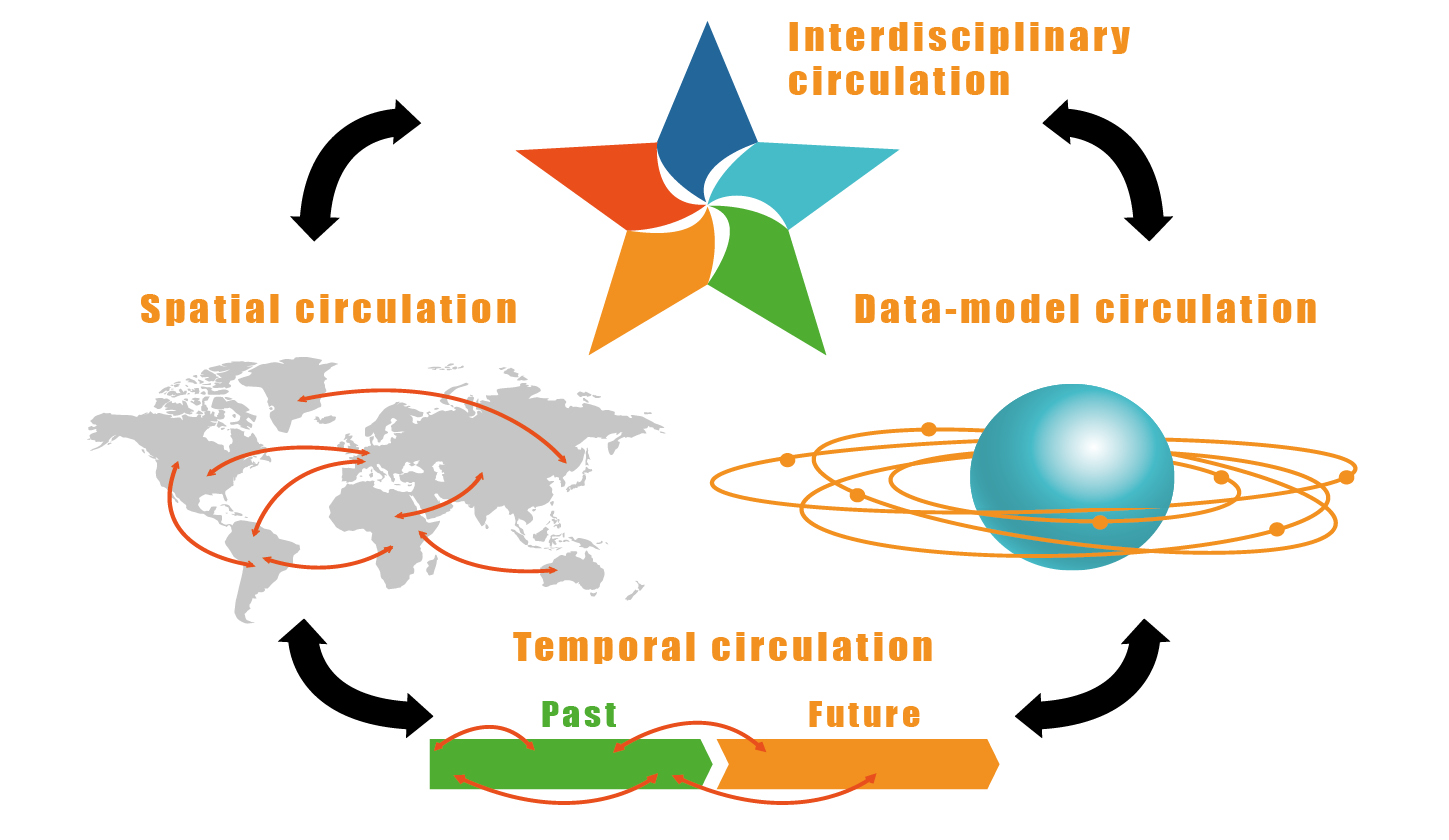- Home
- Publications
- PAGES Magazine
- Sociological Analysis of The PAGES Network
Sociological analysis of the PAGES network
Dhaille C, Ogorzelec L and Vannière B
Past Global Changes Magazine
30(1)
32
2022
In 2021, PAGES celebrated 30 years of intense activity building and managing a global scientific network to study past environmental and climate change. For this, PAGES partnered with the Maison des Sciences de l'Homme et de l'Environnement Claude Nicolas Ledoux (CNRS, Université de Franche-Comté, Besançon, France) to host a masters student in sociology, who analyzed many aspects of the PAGES program since its creation in 1991, in terms of its organization, its scientific objectives, and the epistemological strategies used.
The material collected and studied during the internship includes a selected excerpt from PAGES publications and archives, and five interviews with PAGES officials. The documentary corpus was selected to cover the longest possible period of time to obtain a total volume of text to be studied that was manageable within the three-months internship. This corpus consisted of: (1) all the editorials of Past Global Changes Magazine since the publication of the first issue in 1993, and (2) all the "science plans" defining and redefining the scientific directions of the program. Interviews were conducted with three former executive directors (Frank Oldfield, Keith Alverson, and Thorsten Kiefer), the current executive director (Marie-France Loutre), and a member of the scientific steering committee (Emilie Capron). These interviews allowed us to better understand how the scientific policy of PAGES was implemented.
The study shows that over the past 30 years, the researchers who have carried out their work in the PAGES program, regardless of their discipline, are first and foremost recognized in their efforts in developing multiple forms of "circulation" between knowledge, skills, and data. Circulation is a modality of knowledge production within scientific disciplines (or between disciplines) in which the progress of scientific understanding depends on the comparison of singular cases that are never completely reducible to each other (Ogorzelec-Guinchard 2021).
The first form of circulation is found in the highly heterogeneous, yet complementary, nature of the data and proxies used to study past global change. The second form of circulation covers the spatial dimension of research. To understand the functioning and dynamics of the climate system, it is necessary to collect and articulate data from all regions of the world, even if each region remains marked by its own particularities.
A third form of circulation, between observations and models, characterizes the research within PAGES. This form of circulation can be two-way, seeking either the interpretation of data through a functional model, or a "path of reference" (Latour 1995), returning to the field where the data were collected, to apply a predictive model. Finally, the "paleo" approach is characterized by a temporal circulation of knowledge between past and present. This fourth form of circulation offers a perspective on contemporary climatic and environmental changes by placing them in historical context to make them more intelligible.
The originality of the PAGES project lies in these multidimensional exchanges, stemming from all the circulations, likely to bring out new ways in which societies think about their relationship to time, and to analyze how societies settle and unfold in time, especially in times of crisis (Hartog 2015). PAGES' aim is to reorder our experience of time to better understand contemporary changes, the role of societies in these changes, the climatic and environmental mechanisms at play, and to reduce the uncertainties associated with future projections as much as possible.
The forms of circulation (Fig. 1) discussed above are based on the ability of researchers to move between varied geographical and temporal contexts, and sometimes between very specific skillsets and disciplinary approaches. Bringing researchers from different scientific cultures together within working groups and around the same problem forms an arrangement of "distributed cognitions" (Hutchins 1995) and a network of intelligence. Studies of the interactions between natural systems and social systems certainly call for the expansion of these working groups and networks, and for a better understanding of how to manage them.
The ability to create bridges between many different experiences and disciplinary concepts is akin to creating new neural connections that can lead to the emergence of real and original knowledge. As one of the former directors of the program put it: "My own experience was actually: if you go to a workshop, and you are exposed to other people, other ideas, other perspectives – provided that they are well communicated, so you understand something – as this is very inspiring. And I heard this million times of people feel inspired. Purely by being exposed to something new builds new synapses."
Finally, an extension of these types of circulation outside the paleo network is expressed in the dissemination of scientific works resulting from all of PAGES' activities to the wider academic world, and beyond. The interviews conducted showed that this extension, which consists of exchanges with actors outside the network, should be a priority for the researchers. This transfer deserves to be a priority, because it is through this knowledge exchange with the non-academic world, public and decision-makers, that the research objectives are enriched and made more meaningful.
The full report from this internship (in French) can be accessed at pastglobalchanges.org/publications/128532. We do not claim to have thoroughly analyzed PAGES' history, but this report sheds light on the challenges that have been faced by the PAGES program over the last 30 years. PAGES, in stimulating and facilitating these different forms of "circulation", responds effectively to the scientific and political challenges posed by the environmental and climatic crisis we are currently experiencing.
affiliationS
1MSHE, CNRS, Université Bourgogne Franche-Comté, Besançon, France
2University of Paris-Saclay, France
contact
Laetitia Ogorzelec: laetitia.ogorzelec univ-fcomte.fr
univ-fcomte.fr
references
Hutchins E (1995) Cognition in the Wild. MIT Press, 402 pp
Latour B (1995) Common Knowledge 4: 145-187
Ogorzelec-Guinchard L (2021) Des bibliothèques contre l'incertitude. L'Harmattan, 216 pp
